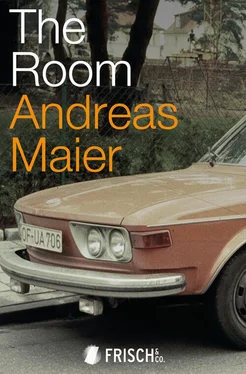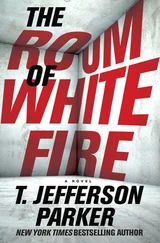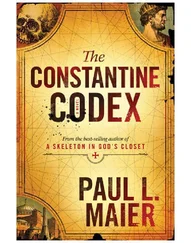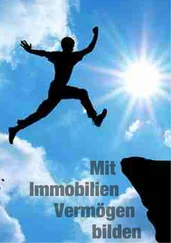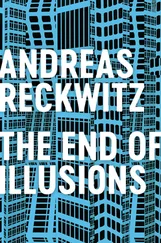Most of the time he would wear these greyish-brown polo-shirts, sometimes with yellow stitching; pale, fusty colours which for me are now inextricably linked to his silage-like stench — even today, when I see items of clothing in these colours, most of which tend to be worn by older people, I can still smell my uncle. He would start to sweat into his shirt as he tackled the first few packages of the day, and even today I can’t begin to imagine how the smell must have developed there at the postal depot during the course of the day, because it had to have been even worse than it was at home with us. After all, he only came home once he was done lugging the parcels around, once the smell had already started to subside.
As long as he lived, Uncle J never once told us anything about his work colleagues at the Frankfurt post depot, so I don’t know whether he had any acquaintances there. Perhaps at that time it was mostly Italians, Turks or Tunisians working there anyway, because Germany was still welcoming migrant workers with open arms then, at the end of the sixties. Given that I don’t know anything for sure, I can only imagine how he might have made some friends there, against the odds, how he might have been able to say certain sentences to some person or another, supposedly of an expert nature and exclusively consisting of superlatives as per usual, and maybe they even had their first beer of the day together, let’s say after an hour, at around six in the morning, the first beer, the first fraternisation, the first communal sit down of the day, their gazes fixed on the mountain of parcels they had to distribute, the Spaniards, the Greeks, the Italians, the Germans and my uncle J from the Wetterau, all there so that these parcels could reach their recipients, in Oldenburg, in Münster, in Wölfersheim. I’m sure that kind of work leads the person doing it to think they’re the central hub of the whole world, that nothing would function without them, because someone who leads and facilitates the transportation of goods also facilitates civilisation itself, or, as they would have said at the postal depot: The packages simply have to reach their destination. You might say, then, that my uncle was serving as the central hub and distribution centre of the entire world, which must have been important to him, and maybe he really did walk around the depot with a certain sense of pride, that is until he received his next order, which would be followed by the next hiss (it’s always me), and then the next beer.
People still used to drink at work back then, whereas today drinking has completely disappeared from the workplace. In actual fact there’s been a drinking ban for ages, since back before there was even a smoking ban; it’s just that the drinking ban was never publicised. When I was a kid, every bin man was guzzling from first thing in the morning, the postmen were pretty much always drunk, the city workers already stank of beer by the time they started their shift, and the couriers at the trade associations drank schnapps, in addition to the beer, between trips. Even in 1984, when I started working for Oberhessischen Energy, everyone was boozing away a mere hour after we clocked on. Except they didn’t see it as boozing, more a hearty kind of breakfast. Beer was a source of nourishment; it made you stronger, that’s what they thought. Even my mother was fond of these hearty breakfasts in the mornings; when the cleaning woman came (an immigrant from Serbia, still known as Yugoslavia back then), they would clean for a while and then have breakfast together, something my mother had probably been looking forward to the whole week long. There they would sit in our kitchen at ten in the morning, while my father was off in Frankfurt earning the family’s keep at the Henninger brewery, and they would heave the Henninger bottles onto the table and pour Slivowitz down their necks. There would be paprika sausage to go with it, along with pickled onions and the like, and after half an hour they would have these happy, red faces that stayed with them for the rest of the day. Until just recently, that kind of thing was completely normal in our country. Once upon a time, this country drank. Now, any bin man would be fired on the spot if he had already imbibed three litres of beer by nine in the morning. In repeats of Firma Hesselbach , a TV series from the early 1960s, back in my uncle’s day, they’re all drinking beer whenever they want, even first thing in the morning. And the people were red and happy, and it was their life, and sometimes they even died at home in their own beds, something which my uncle J didn’t experience. He died in hospital, on the second day. He didn’t suffer long, they told us, and ever since then my family has been convinced that they killed him there in the hospital, which isn’t improbable. My grandmother spent a lifetime caring for him, he spent several years vegetating in an apartment with his later girlfriend Rosl, and then he got to the hospital and was quickly disposed of. He must have spent a fair bit of time wired up in there, after which he supposedly died all of a sudden and the doctors claimed not to have noticed straight away. To be on the safe side they plugged him in one more time, gave him another burst of electricity, then probably just turned it up and left the room, leaving him to dance and thrash around alone, or that’s how it looked afterwards in any case.
But he has no idea of what is to come back then, as he drinks the fifth and sixth and maybe even seventh beer of his working morning in Frankfurt am Main. After all, what idea did anyone have of the future, the future they thought was directly ahead of them or perhaps even already there? It hadn’t been that long since the war and the uniforms of the brownshirts, the colour of which wasn’t dissimilar to the polo shirts worn by my hunting fanatic of an uncle, and even J’s car was that Nazi-brown colour, and now here they were sitting with the Greeks and the Italians and the Spaniards on a bench in the train station, drinking beer and smoking in an atmosphere of workplace collegiality. They unpack their lunch boxes, like the ones I used to be sent off to school with in the beginning. I still remember my uncle’s lunch boxes, I can picture them very clearly, including what my grandmother used to pack in there for him each evening, because of course she wouldn’t get up at three in the morning when he had an early shift, J had to get himself up then, get himself dressed and off to the station. She would put sausage sandwiches in there for him, tucked into a corner of the lunchbox according to a very specific spatial principle, and in the remaining space there would be an egg, a gherkin or an onion, all garnished with a serviette. When I was at school, I used to be given packed lunches too; going off to school or work was like embarking on a journey, you had to be well-prepared, you couldn’t have an energy slump in the midst of it all, you had to have something with you to keep your strength up, and since it wasn’t possible to buy things on the go back then, people always took everything with them. You couldn’t get take-away coffee anywhere, everyone used thermos flasks instead. There would be one in every bag, and my uncle J had one of these flasks too, filled with milky coffee. A land of thermos flasks. A little piece of home with you at all times.
My uncle took his coffee with sugar. He would add five teaspoons of sugar to an average cup of ground coffee (I always watched, aghast); so if you add it up, he must have shoveled around twenty-five to thirty teaspoons of refined sugar into every thermos. My uncle didn’t live a healthy life, that’s for sure, but then again it wasn’t really the fashion to live healthily back then — you could pretty much choose the way you would die, and usually it was the way you had lived. He smoked almost constantly, consumed vast amounts of sugar, and probably drank around four to five litres of beer a day. But he went to the forest too, he loved the forest air just as much as the air at the inn, and would go on long walks. He loved driving his car, the car he was allowed to have just like he was allowed to have a driving license, neither of which would have been permitted today. My uncle and his car, they were inseparable. He drove it into the Usa once, the river here, while his mother was next to him in the passenger seat. The car had to be hauled out of the Usa afterwards, and J stood by and watched. It was a VW Type 3 Variant, and it smelled like my uncle. Presented with the choice of either walking the three kilometres from the Uhlandstrasse house to my parents’ place in Friedberg (or vice versa) or getting into J’s car, I would have chosen to walk every time. Looking back now, it seems like everything about him was brown, everything Nazi-coloured, and yet they hadn’t even let him into the Hitler Youth, nor had he been a Luftwaffe assistant, and his only social interaction as a child and teenager had consisted of getting beaten up. He may have been fourteen by the time the war came to an end, but he was still an idiot, and would continue being one for the rest of his life, something which was already clear to everyone else. What’s more, my uncle J was one of those people who tend to idolise the very people who torment them. They develop an intense attachment to their torturers and tag along at their heels. My mother says that she and her brother were constantly having to escort my uncle, the oldest of all of them, whenever they could. But it wasn’t always possible, and if there was no other member of the Boll family around, he was told to walk home, or to wherever one of his siblings was, as quickly as he could. That was what they tried to drum into him. But presumably he always dawdled around instead, and day after day he would end up getting beaten as a result. His must have been a very bloody childhood, and he looked set to begin a bloody adolescence until they sent him off to the Rhineland, where he had some peace and even met Konrad Adenauer, whose rose garden he walked past every morning during what were probably his most idyllic years, my uncle in the Rhineland, the mentally-impaired Wetterau boy, the poor thing, and the Chancellor said hello to him politely, with no idea of who he was saying hello to.
Читать дальше
